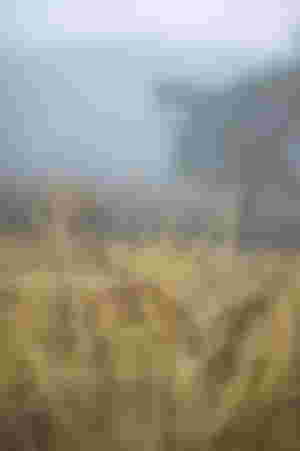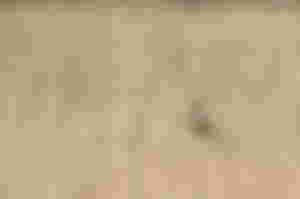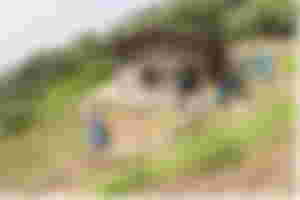We know this, but it's fine to remember. Wealth is our relationship with the earth, animals, plants etc.
If we think in a way so that wealth means 'an abundance of valuable material possessions or resources', we get so small as to be a dot in the universe.
Wealth being the driver of nations, sowed the seeds for development but also for alienation, and wars. Greed and exploitation.
In so much that happiness, was made obsolete from it's definition and meaning.
Nevertheless nations keep clinging to the pursuit of wealth as if it was an achievable goal within their definitions. It is not.
That's why I find natural farming so important.
It all begins with the source.
It’s not the technique, it’s the view.

"So the usual approach to developing a system is to say how about trying this and how about trying that — he decided to go the opposite direction, how about not doing this and how about not doing that."(1)
"He does not hold water in his rice fields throughout the growing season as farmers have done for centuries (..) The soil of his fields has been left unplowed for over twenty-five years, yet their yields compare favorably with those of the most productive Japanese farms. (..) It creates no pollution and does not require the use of fossil fuels.
When I first heard stories about Mr. Fukuoka, I was skeptical. How could it be possible to grow high-yielding crops of rice and winter grains each year simply by scattering seed onto the surface of an unplowed field? There had to be more to it than that."
This means that with a fraction of the work, without pesticides or fertilizer besides straw taken from the previous harvest, without revolving the ground each season and without weeding and pest control, this man Fukuoka, was able to harvest 22 bushels per quarter acre, occasionally 27,5 bushels. Competing with the most fertile lands in Japan. At the same time improving the soil and the biodiversity in the field.

Fertility
"If you want to get an idea of the natural fertility of the earth , take a walk to the wild mountainside sometime and look at the giant trees that grow without fertilizer and without cultivation. The fertility of nature, as it is, is beyond reach of the imagination.
Cut down the natural forest cover, plant Japanese red pine or cedar trees for a few generations , and the soil will become depleted and open to erosion."

Sources:
Fukuoka Masanobu, The one-straw revolution.
http://www.finalstraw.org/masanobu-fukuoka-and-natural-farming/
Further reading:
Interview with Panos Manikis. [ - ]
Final Straw, short film. [ - ]
https://www.chelseagreen.com/2015/distinguish-permaculture-natural-farming/
Images:
'Bearded Reedling' by Benoit Gauzere on Unsplash.com
Final Straw documentary



This is the type of article that I like to read. Economics and ecology go hand in hand.
Greetings.
Este es el tipo de artículos que me gusta leer. La economía y la ecología van de la mano.
Saludos.